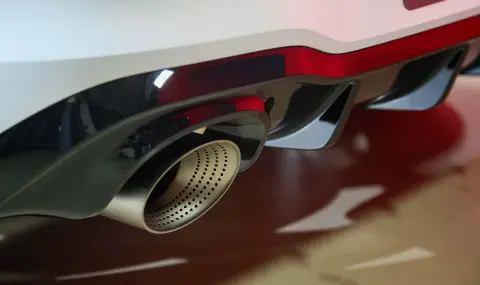At Volkswagen, electric car sales fell by 2.7% in 2024, while Audi was hit even harder, with electric car sales down by 7.8%. Demand for the VW Group's zero-emission models fell by 3.4% overall, proving that the transition to a purely electric product range will be difficult.
According to new information, the two brands want to invest more money in revising their current models with internal combustion engines. This will extend the life of these cars, as well as internal combustion engines in general.
According to several insiders cited by Handelsblatt, VW and Audi want to postpone their electric car targets in Europe. The Wolfsburg-based carmaker had planned to be fully electric on the continent by 2033, but that is apparently no longer the case. Audi even set itself the lofty goal of eliminating internal combustion engines worldwide by that year.
According to a statement from CEO Gernot Dölner, it is now clear that Audi will remain “flexible”. At VW, head of technical development Kai Grünitz does not rule out the Golf 8 being on sale by the middle of the next decade. The fully electric Golf 9, also known as the ID.Golf, will be available by the end of the decade, so VW does not rule out selling two generations in parallel for several years.
According to Handelsblatt, a decision on further investment in models with internal combustion engines will be made in early March.
If VW and Audi decide to do so, it will logically have an impact on the sister models of the other VW Group brands, in particular Skoda and Seat/ Cupra . However, if the European Union sticks to its ambitious goal of forcing carmakers to sell only electric cars as new cars from 2035, the car group will have no choice but to comply with the imposed measures.
Another VW Group brand, Porsche , is already adjusting its strategy in view of weak demand for electric vehicles. Taycan deliveries fell by 49 percent last year, but there was another electric car on the horizon. The second generation of the Macan, now fully electric, registered more than 18,000 new orders in its first year of sales. However, the Zuffenhausen-based company is nevertheless returning to the internal combustion engine, equipping future models that were originally developed as pure electric vehicles with internal combustion engines.
Bentley, which is higher up in the VW Group hierarchy, has postponed the launch of its first electric car by a year, from 2025 to 2026. The brand had planned to phase out internal combustion engines by 2030, but the ultimate goal is to be fully electric by 2035.
Similarly, Lamborghini, which surpassed Bentley in sales for the first time last year, has postponed the launch of its first electric car. The four-seater Lanzador will not be launched until 2029. The second-generation Urus, which will be launched around the same time, is expected to be a purely electric affair. The brand isn't giving up on petrol engines anytime soon, though. The V12-powered Revuelto and V8-powered Temerario will continue to be produced until at least the early 2030s.
Bugatti Rimac, which is 55% owned by the Rimac Group and 45% owned by Porsche, won't be launching its first electric vehicle this decade. Its previous parent, the VW Group, wanted to replace the Chiron with an electric car, but plans changed when Rimac and Porsche decided otherwise.
It should also be noted that the EU will not ban internal combustion engines entirely from 2035. The regulation calls for zero-emissions and leaves the door open for internal combustion engines that run on synthetic fuel (e-fuel) or hydrogen. However, it is highly unlikely that these two fuels will completely replace the gasoline engine by the middle of the next decade.
If demand for electric vehicles in Europe does not increase in the coming years, car manufacturers will put more pressure on the EU to postpone the ban. In 2024, the market share of electric vehicles in the EU decreased by 1 percentage point to 13.6%, according to official figures from the European Automobile Manufacturers Association (ACEA). But one thing is clear: Whatever happens in Europe will have global consequences, as some of the biggest players in the industry are based on the continent.
